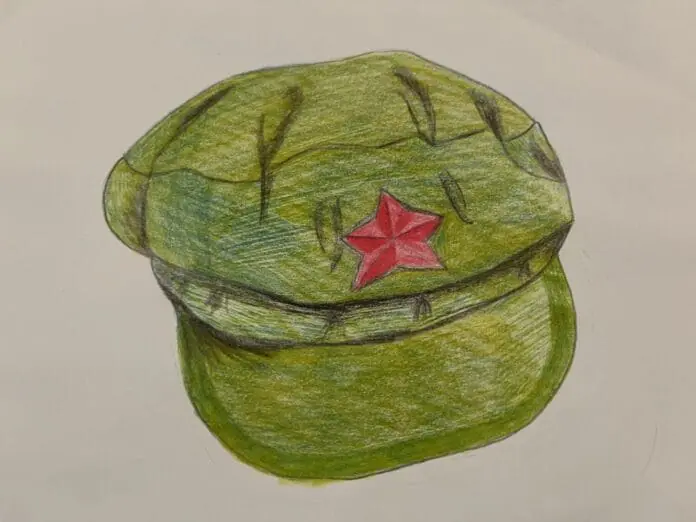English class has done terrible things to my mind and soul, so fair warning. This essay is probably best read with a corkboard and red thread. Triangle of Sadness (2022), directed by Ruben Östlund is a comedy satire film that, through blunt force trauma, laughs at the absurdities of today’s globalized, capitalist society.
To cap it off he appears to predict the emancipation of the third world through the violent overthrow of colonialist institutions by peasants – and takes a lot from the ideas of the sparrow-hater-supreme, Mao Zedong. Triangle of Sadness follows a Maoist understanding of history and humanity’s collective future.
Quotations from Chairman Mao Tse-tung or “The Little Red Book” was Mao’s most notorious addition to the Communist canon. It is composed of short sayings, sort of like proverbs, that were designed to help the average worker in their daily tasks. If the worker encounters a difficult decision, “The Little Red Book” likely has a saying to aid their judgment.
Contrary to orthodox Marxism, Mao believed in the power of China’s rural population to be vanguards of the socialist revolution. Among key tenets of Maoism are the use of guerilla warfare and the recruitment of the peasantry.
God, I hate theory
Triangle of Sadness. Technically the movie is about a male model and his influencer/model girlfriend who are given tickets to a luxury cruise line to promote it on her social media. Shenanigans ensue.
The opening scene is a bit of a mockumentary asking some explicit questions of the male models.
How do they feel that they get paid less for the same work, are sexually pursued by their bosses and expected to smile and contort their personalities on demand?
I read this as Östlund reminding the viewer that even the “privileged” class of workers is exploited in ways we often forget. Being a male model is so often presented as a fantasy. All they have to do is walk and pose and women fall over themselves to be with them, à la Zoolander (2001). These workers are still exploited, even if they’re being exploited in very nice clothes.
Our protagonists are enjoying their cruise when something becomes apparent. The people doing the actual work, those who are literally on their hands and knees, are the only polite and happy crew members.
The maids, mechanics and other support personnel, who are discouraged from interacting with the guests, smile and laugh with each other. They say please and thank you, they help each other and appear to genuinely like each other.
A Marxist reading
A Marxist might read this as a demonstration of the inherent corruption that comes from bourgeoisie economics.
Everything is monetized and relationships are valued not based on how fulfilling they are but rather based on their fiscal potential.
The captain of the ship, played by Woody Harrelson, and a Russian oligarch, played by Zlatko Burić debate the merits of capitalism versus communism in a drunken stupor while the ship sinks. There is nothing funnier than a first-world leftist (Harrelson’s character) and a vehement anti-communist (Buric) literally dying on their ideological hills while their world falls apart.
Thus, the old world order is demolished and the only people who can survive are the “actual” workers. Like a maid who was in charge of toilets, who now hunts and feeds the survivors of the apocalypse. Some of the survivors try to preserve the old order, but all the reasoning in the world will not fill an empty tummy.
Even when the world is rapidly falling apart, humans are spending more time arguing about it than fixing it.


Recent Comments